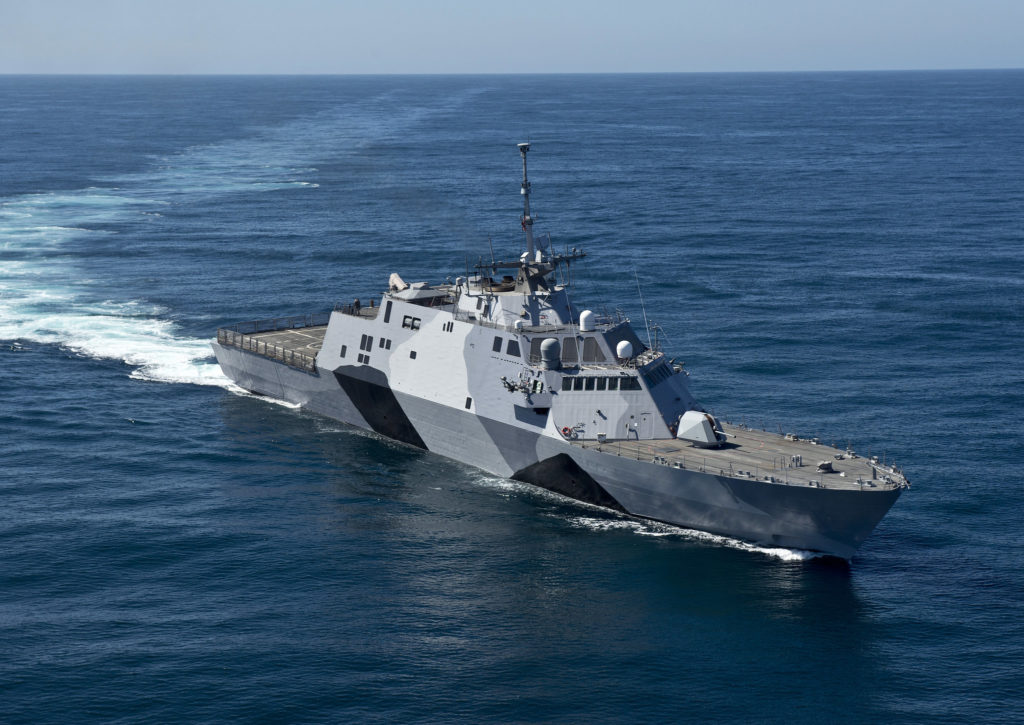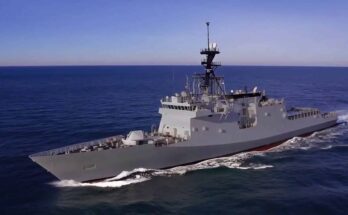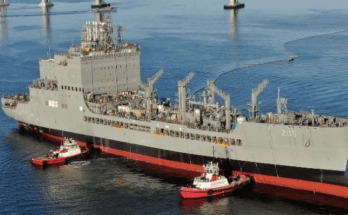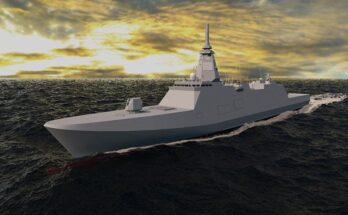
The standing of the Freedom class (LCS 1) in the naval world may best be summarized by saying that while it turned into a somewhat satisfactory class of ship, it has a very limited role and a number of worrying design issues. The ships themselves seem to have been found wanting relative to the high expectations initially placed on the class. Add to this the problems that keep cropping up resulting from original design flaws and construction, and it is doubtful the U.S. Navy will go beyond the number of ships already contract-bound.
In general, new orders for the role of LCS-type ships going forward will be for the Constellation class (FFG) FREMM-based design, although the scale of future LCS construction is now probably more uncertain than at any time in its history.
The future USS Cleveland (LCS 31) will be the last produced LCS Freedom-class variant.
Recent January 2024 reports indicate Greece’s Hellenic Navy may take four of the U.S. Navy’s troubled Littoral Combat Ship Freedom-class variant off the U.S. Navy’s hands. Transferring these ships to other nations would certainly save the U.S. a ton of money and hassle in trying to dispose of them.
The Freedom class has a history of propulsion gear problems. A fix has been incorporated into new construction. Unfortunately, retrofitting the fix to already active ships is too costly for the U.S. given they aren’t building any additional ships beyond current contracts. Additionally, the ship just never worked for the missions the U.S. Navy wanted. Thus the U.S. decided to go back to traditional frigates with the new FFG 62 Constellation class which is a FREMM frigate-based design.
However, if Greece, or any nation, can get these ships at a low price — say for the cost of the fix itself — it would be a bargain. The Freedom class is much better suited for coastal navies that don’t have to sail halfway around the world for engagement. With the Hellenic Navy’s extremely aged ships, such a transfer could be considered a win for both nations.
For more than 30 years, Richard has performed numerous roles as a top analyst for Forecast International. Currently, Richard is the Group Leader and Lead Analyst for Forecast International's Traditional Defense Systems, which covers all aspects of naval warfare, military vehicles, ordnance and munitions, missiles, and unmanned vehicles.
Having previously been Forecast International's Electronics Group Leader for 20-plus years, Richard established Electro-Optical Systems Forecast, as well as having been the prime editor of Electronic Systems Forecast, Land & Sea-Based Electronics Forecast, and C4I Forecast. Additionally, Richard has served as the Naval Systems Group Leader responsible for Anti-Submarine Warfare Forecast andWarships Forecast.




